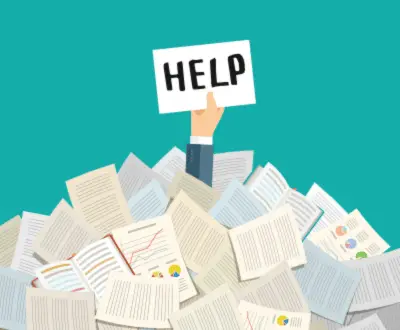
Understanding the IRS Substitute for Return
Click to ask Mike Ask Mike The Internal Revenue Service (IRS) Substitute for Return (SFR) is a term many taxpayers

Tax Day is April 15th every year, but it can be easy to miss the deadline, especially if you’re self-employed or have a complex tax situation. If you don’t file your taxes on time, there are a few things you need to know about the consequences.
Failure to File
The IRS will penalize you for failing to file your taxes on time. The penalty is 5% of the taxes you owe for each month your return is late, up to a maximum of 25%. However, if you don’t file within 60 days of the due date, the minimum penalty is $210 or 100% of your unpaid tax, whichever is less.
Failure to Pay
If you don’t pay your taxes on time, the IRS will also penalize you. The penalty is 0.5% of the taxes you owe for each month your payment is late, up to a maximum of 25%. However, interest will also accrue on your unpaid taxes, starting the day after the due date. The interest rate is the federal short-term interest rate plus 3%.
First Time Penalty Abatement
If you’re a first-time offender, you may be eligible to have your first penalty waived. To be eligible, you must meet the following requirements:
The 90% Rule
Most years, if you have paid 90% of your balance due on Tax Day, the IRS will not penalize you for failing to pay proper estimated taxes. However, for 2023, if you paid at least 80% of your tax liability through paycheck withholdings, quarterly estimated tax payments, or a combination of the two, you would not face any IRS penalties.
What’s the Worst That Can Happen?
If you don’t file your taxes or file for an extension, the IRS can:
What to Do if You Can’t File or Pay on Time
If you can’t file or pay your taxes on time, the most important thing to do is to contact the IRS as soon as possible. There are a number of options available to help you, including:
Conclusion
The best thing to do is to file and pay your taxes on time to avoid building up penalties and interest. However, if you can’t file or pay on time, there are a number of options available to help you.
You can now ask our AI assistant any questions you have about your tax debt or any tax-related issues. Whether you’re unsure about payment plans, need clarification on penalties, or want information on how to resolve your tax situation. Our AI is ready to assist you with all your tax-related concerns.

By interacting with our AI assistance, you agree to our terms & conditions. Enjoy our AI Tax Assistant responsibly.
Ask me any questions...
Related Posts

Click to ask Mike Ask Mike The Internal Revenue Service (IRS) Substitute for Return (SFR) is a term many taxpayers

Click to ask Mike Ask Mike The Internal Revenue Service (IRS) Substitute for Return (SFR) is a term many taxpayers

Click to ask Mike Ask Mike The Internal Revenue Service typically operates within a 10-year window, commencing from the

Click to ask Mike Ask Mike The Internal Revenue Service (IRS) operates within specific timeframes dictated by statutes of limitations

Click to ask Mike Ask Mike understanding the ins and outs of the 10-year statute of limitations (SOL) is essential.
Recent Posts

Click to ask Mike Ask Mike The Internal Revenue Service (IRS) Substitute for Return (SFR) is a term many taxpayers

Click to ask Mike Ask Mike The Internal Revenue Service (IRS) Substitute for Return (SFR) is a term many taxpayers

Click to ask Mike Ask Mike The Internal Revenue Service typically operates within a 10-year window, commencing from the

Click to ask Mike Ask Mike The Internal Revenue Service (IRS) operates within specific timeframes dictated by statutes of limitations

Click to ask Mike Ask Mike understanding the ins and outs of the 10-year statute of limitations (SOL) is essential.
Disclaimer: This is educational content, not legal, accounting, or tax advice.
This is a tax debt resource website, not to be used in lieu of a tax attorney or for legal advice. All information, Ai chat responses, articles, materials, and content are intended to inform users on a variety of tax topics. In no way is it intended to be construed as accounting, legal, tax, other services or advice. This site is not intended to be used to avoid tax penalties or tax debt that may be imposed by law. Terms and Conditions. Your use of this site constitutes acceptance of the following terms and conditions.
This is a tax debt resource website, not to be used in lieu of a tax attorney or for legal advice. All information, Ai chat responses, articles, materials, and content are intended to inform users on a variety of tax topics. In no way is it intended to be construed as accounting, legal, tax, other services or advice. This site is not intended to be used to avoid tax penalties or tax debt that may be imposed by law. Terms and Conditions. Your use of this site constitutes acceptance of the following terms and conditions.
© 2023 · Tax Debt Monster, Inc. All rights reserved

For all Tax Professionals that would like to partner up with us. By partnering with us, you’ll help us connect and make a positive impact in the tax community. Partner up with us and receive a complimentary Ai Tax Sidekick to help support your clients at no cost! Click here if you’re interested in our Partner-Up program

By interacting with our AI assistance, you agree to our terms & conditions. Enjoy our AI Tax Assistant responsibly.
How may I help you with your tax issue?